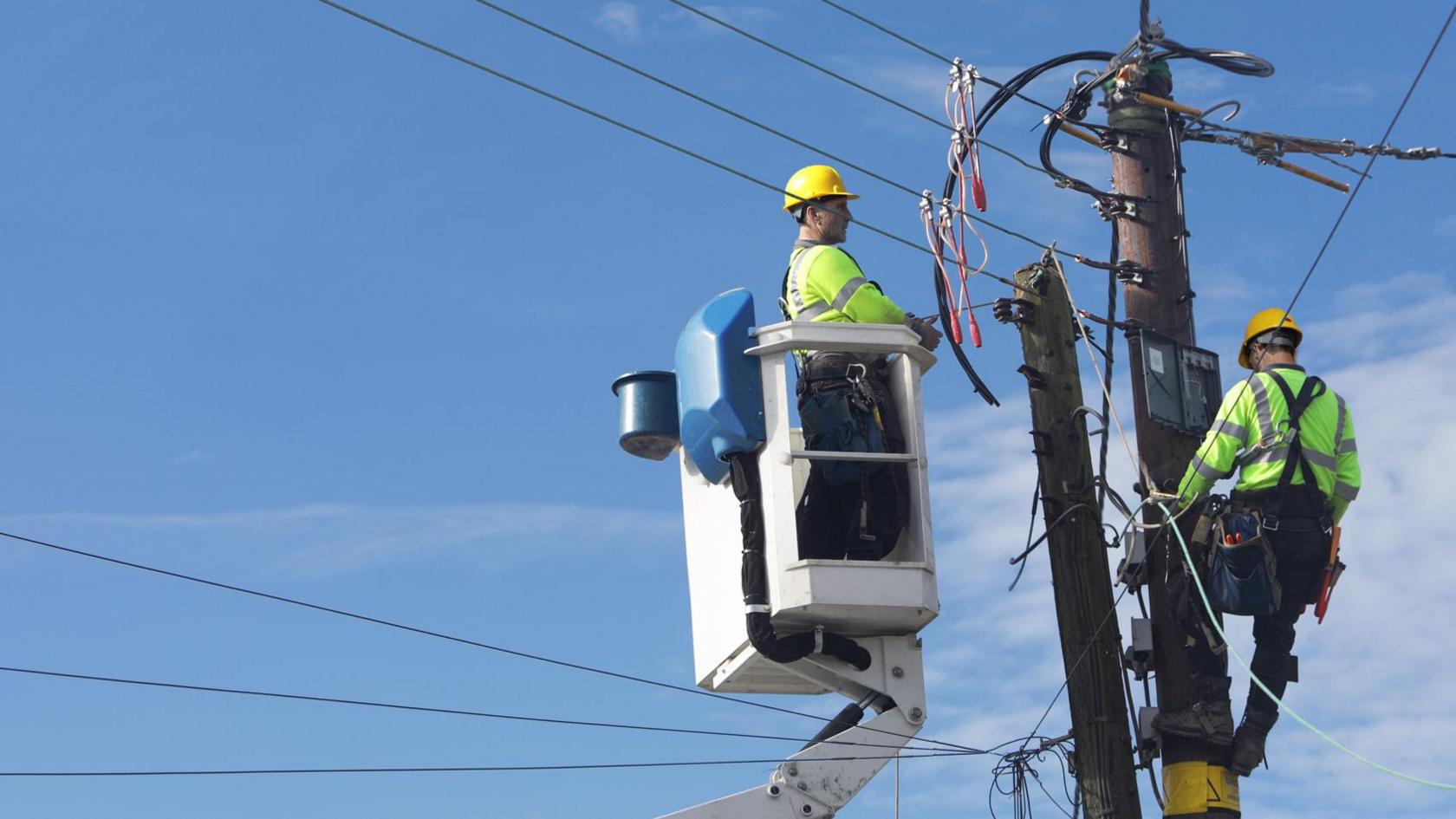Energy fund seeks greener ways to power homes

Innovation in energy transmission and distribution could reduce carbon emissions, says Ofgem
- Published
A £450m fund is being set up to encourage energy suppliers to explore greener ways to power British homes and businesses.
The energy regulator, Ofgem, said firms should submit ideas that were "big, bold and ambitious".
They could include new ways to heat homes, store energy or transport goods and people.
The UK is committed to reaching net zero by 2050, which means significantly reducing the current level of carbon emissions.
"What we need, more than ever, to reduce greenhouse gas emissions and reach net zero, is innovation," said Jonathan Brearley, chief executive of Ofgem.
Ofgem identified four areas that its Strategic Innovation Fund would focus on: heat, transport, data and digitalisation, and "whole system integration".
The fund is open for applications from 31 August and will initially run for five years, although the regulator said that could be extended if proposed plans were "strong".
Projects could include heat pumps, that use much less energy to heat homes than gas fired boilers, better electricity transmission and distribution networks, and battery storage technology, Ofgem said.
They should also have the potential to be scaled up across the networks upon completion, it said.
As the energy sector regulator, Ofgem's role is to ensure current and future consumers are offered the best service possible, by encouraging competition and innovation.
Ofgem is looking for innovation that “makes sense” in a world where people are driving millions of electric cars and heating their homes differently, said the regulator’s chief executive, Jonathan Brearley.
“We need innovation that’s going to make sure that we charge our cars at different times of day and night, so we don’t need to build so many pipes and wires across the system,” he told the BBC.
The fund is saying to the network companies that have traditionally built gas pipes and electric wires around the country: “You need to change, and we’re going to help you to do that,” he said.
For storing energy generated by renewables, there was “great innovation in large-scale batteries”, he said. Electric vehicle batteries could also be “harnessed” in so-called “vehicle-to-grid” systems.